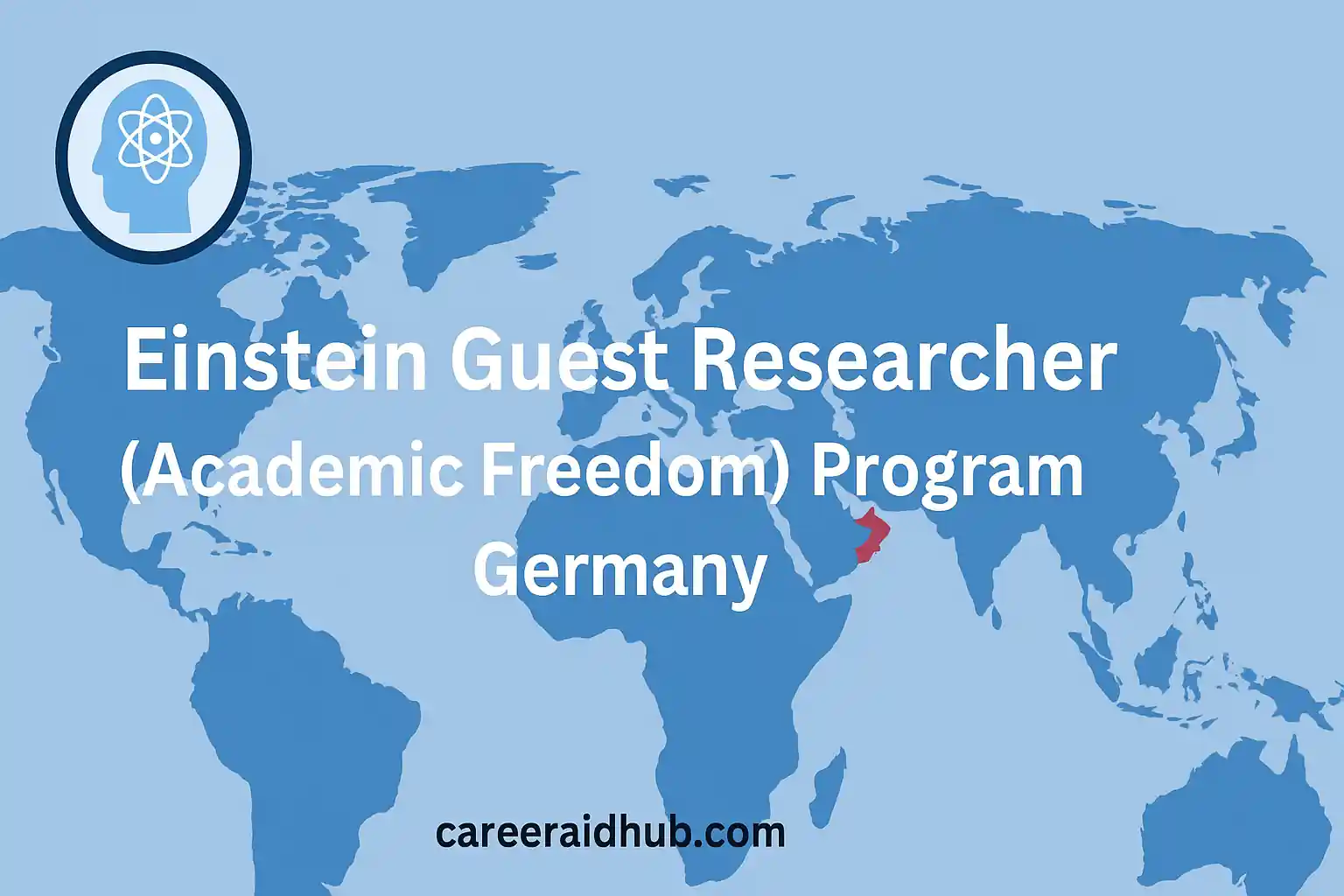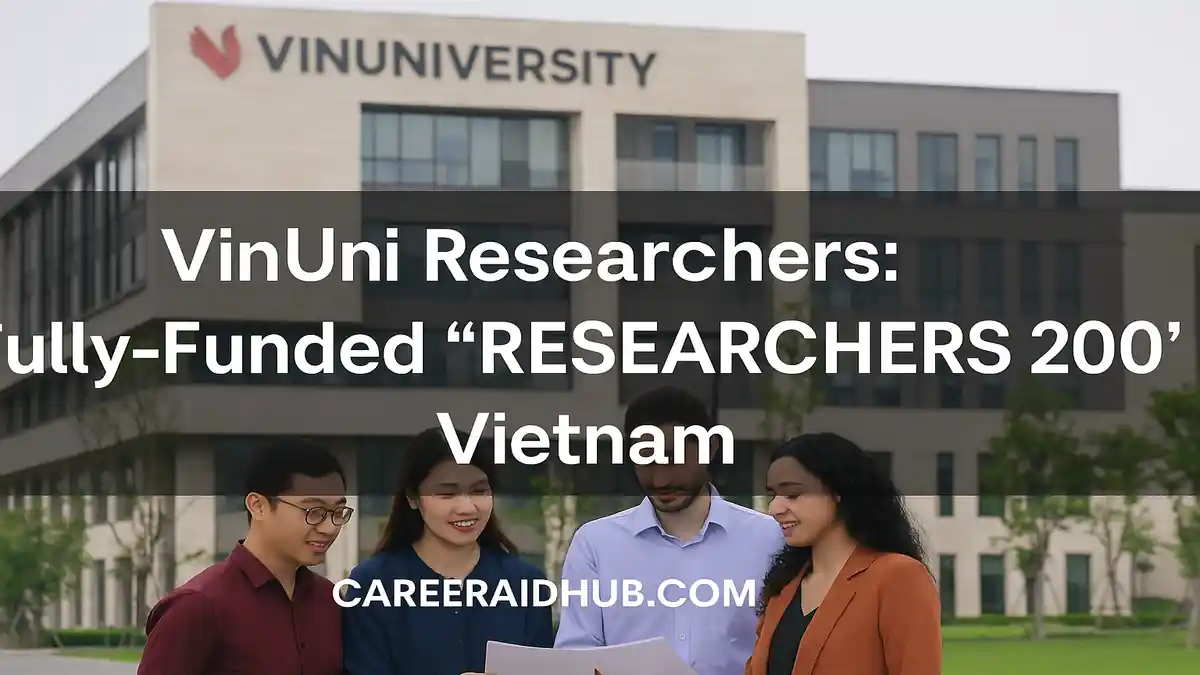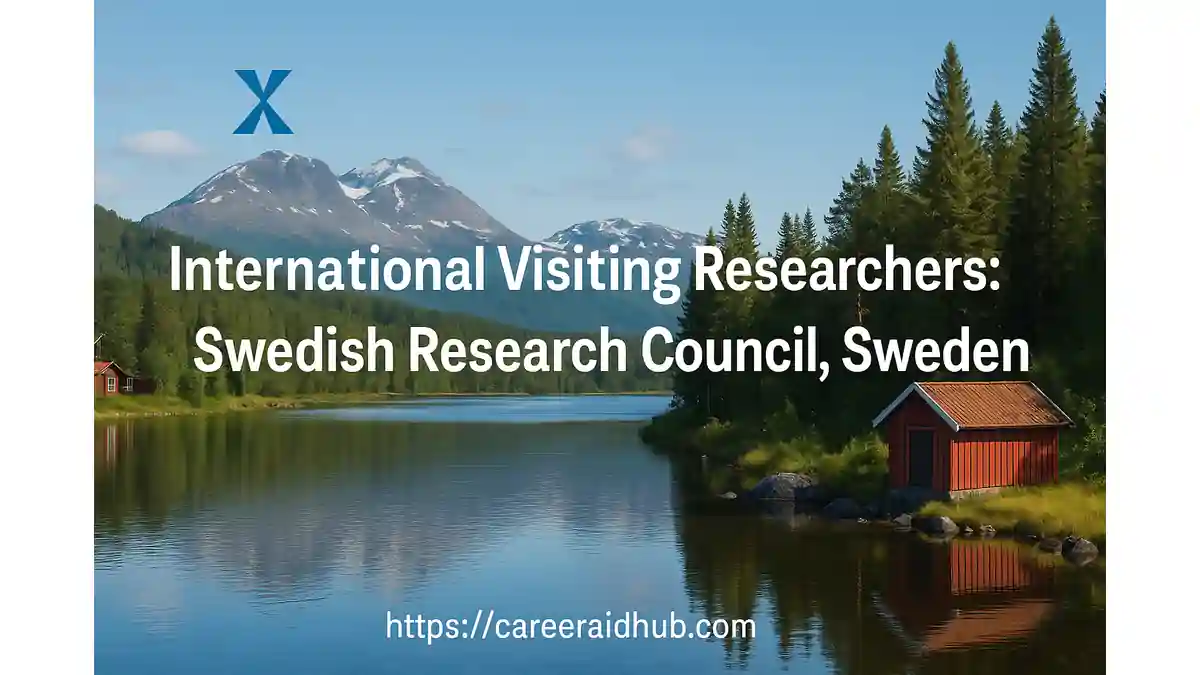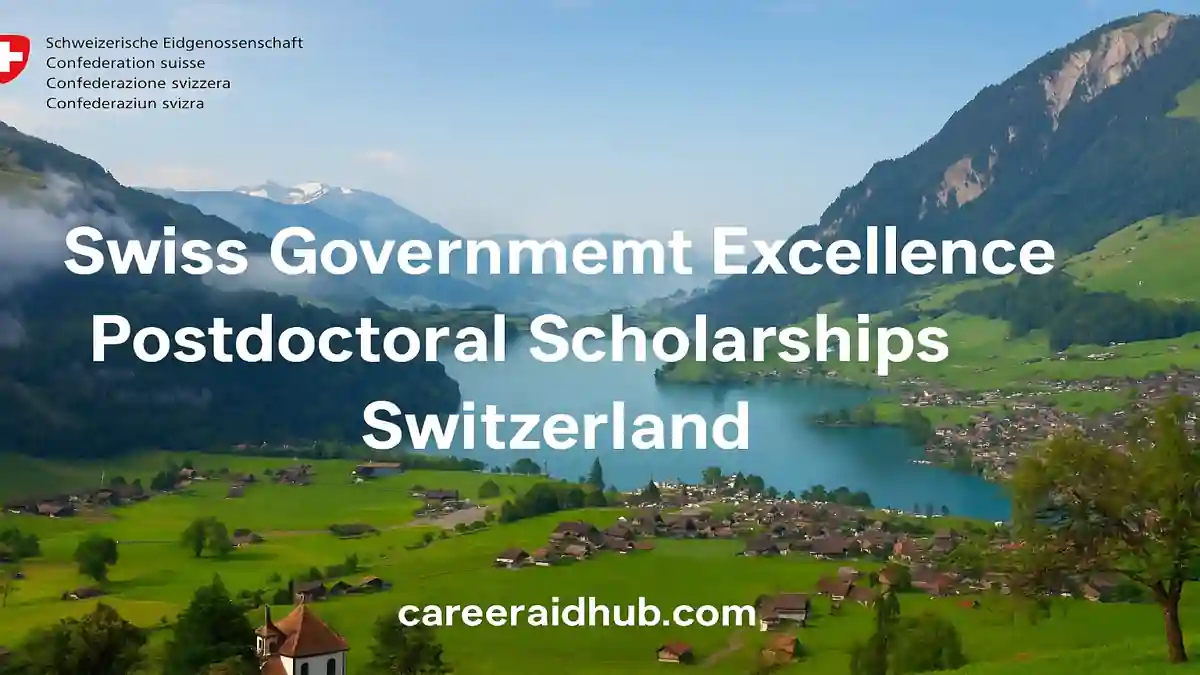Academic freedom remains fragile in many regions of the world, threatened by political instability, authoritarian governance, or systemic discrimination. Scholars under such conditions often face surveillance, institutional censorship, and even violence. The Einstein Guest Researcher (Academic Freedom) program, supported by the Einstein Foundation Berlin, addresses this global crisis by offering safe and well-supported research positions in Berlin.
This initiative does more than protect individual academics. It embodies a broader commitment to preserving the universal right to scientific inquiry. By providing displaced scholars the opportunity to continue their work, the program enhances academic diversity and integrity in Berlin’s research institutions.
The Einstein Guest Researcher (Academic Freedom) program provides vital support to international researchers facing threats to their academic freedom. Based in Berlin, it offers fully funded research opportunities, a safe academic environment, and structured support to scholars escaping repression or censorship, reaffirming Berlin’s role in upholding scientific integrity.
Einstein Guest Researcher (Academic Freedom) Program
Dual Tracks: Immediate and Advanced Support Options
To accommodate scholars at different stages of displacement or resettlement, the program offers two tailored tracks:
Immediate Support Pathway
Target Group: Scholars holding a Ph.D. who remain abroad and are currently under direct threat or persecution.
Support Offered:
-
- Monthly scholarshipof up to €2,100 for one year.
- Up to €5,000 in additional funding for materials such as language training, conference participation, or publication costs.
- Monthly scholarship
Application Requirements
Applicants must establish collaboration with a Berlin-based research institution such as Freie Universität Berlin or Humboldt-Universität. All submissions must be made through the host institution. Funding decisions are finalized by the Foundation’s Executive Board and typically require a six-week lead time before each scheduled meeting.
Advanced Support Pathway
Target Group: Ph.D. holders already residing in Germany or another safe country for no longer than four years. This track emphasizes independent research initiation.
Support Offered:
-
- Appointment to a university research position (TV-L 13 level).
- Up to €30,000 in material and research-related funding.
- Program duration of up to two years.
Application Process
Applications undergo a full peer-review evaluation. The entire process can take six to seven months. The host institution must guarantee robust research supervision, professional development resources, and integration opportunities for the fellow.
Eligibility Criteria
To ensure alignment with the program’s mission, applicants must meet the following requirements:
-
- Ph.D. Degree: Only candidates with a completed doctorate or equivalent qualification are eligible.
- Threat to Academic Freedom:Clear evidence of persecution, censorship, or professional discrimination is required.
- Geographic Conditions:
- Immediate Support: Scholars still located outside Germany.
- Advanced Support: Researchers already residing in Germany or another safe nation, but for no more than four years.
- Exclusions:
- Citizens of EU member states, Norway, and Switzerland.
- Bildungsinländer:innen (those with German university entrance qualifications).
- Proof of Risk: While not mandatory, documentation such as asylum applications, support from Scholars at Risk, or press articles is strongly recommended.
Application Workflow: From Inquiry to Relocation
Step 1: Identify a Berlin Host Institution
Secure a commitment from a host researcher or academic department willing to provide academic supervision and infrastructural support.
Step 2: Prepare the Application Portfolio
Required materials include a detailed research proposal, the host institution’s support letter, academic CV, and documentation supporting claims of academic repression.
Step 3: Institutional Submission
The complete application package must be submitted through the host institution’s research administration and forwarded to the Einstein Foundation.
Step 4: Evaluation and Decision
-
-
- Immediate Support: Approximately six weeks for review.
- Advanced Support: Full review cycle takes six to seven months.
-
Step 5: Relocation and Research Implementation
Upon acceptance, scholars receive funding and begin their academic activities in Berlin, with continued institutional support and
Why Berlin and the Einstein Foundation?
Berlin has long established itself as a stronghold for academic liberty and interdisciplinary scholarship. Through initiatives like the Einstein Guest Researcher program, the city actively invests in preserving the core values of scientific freedom, human rights, and intellectual pluralism.
The Einstein Foundation Berlin allocates more than €20 million annually to promote high-impact research projects and to protect the academic community from systemic disruption. Since 2009, it has supported hundreds of scholars, thereby enriching Berlin’s role as a global hub for open, inclusive research.
Impact on Scholars, Institutions, and Global Science
I. For Individual Researchers: The program provides a secure space to regain academic footing, access world-class research facilities, and integrate into international academic networks.
II. For Berlin: Welcoming at-risk scholars reinforces Berlin’s position as a defender of academic freedom and enhances its intellectual and cultural fabric.
III. For Global Academia: The program underscores the global responsibility of educational institutions to defend and advance scientific freedom.
Showcasing Real-World Progress
During Academic Freedom Week 2025, Humboldt-Universität featured successful cases of program implementation. Juliane Jurewicz of the Einstein Foundation emphasized that the program not only evaluates academic merit but also addresses political contexts and urgency in each application.
Considerations Before Applying
Prospective applicants and host institutions should take note of key procedural details:
-
- Submission Timelines: Immediate Support requires at least six weeks’ notice before decision meetings; Advanced Support entails a lengthier evaluation period.
- Documentation: While optional, verifiable evidence of risk significantly enhances the credibility of applications.
- Institutional Readiness: Host organizations must ensure infrastructure, mentorship, and long-term academic opportunities.
- Nature of Support: These awards are fixed-term and do not guarantee long-term residency or academic tenure in Germany.
Conclusion
The Einstein Guest Researcher (Academic Freedom) program stands as a powerful model of institutional solidarity and scholarly resilience. By offering targeted support to those whose academic paths have been interrupted by conflict or persecution, it upholds the essential values of scientific integrity and freedom of thought.
Researchers facing such challenges—or Berlin-based institutions wishing to host them—are encouraged to explore detailed guidance and application materials directly via the official program portal.
Next Update Recommendation: Review content in June 2026 to align with upcoming application cycles and adjust for funding or procedural changes.
Here is a professionally formatted table with the program details based on the Einstein Guest Researcher (Academic Freedom) initiative:
|
Feature |
Details |
|
Program Name |
Einstein Guest Researcher (Academic Freedom) Program |
|
Host Country |
Germany (Berlin) |
|
Funded By |
Einstein Foundation Berlin |
|
Duration |
Up to 12 months (Immediate Support); up to 24 months (Advanced Support) |
|
Study Mode |
Full-time |
|
Eligibility |
Ph.D. holders under threat due to academic persecution or censorship |
|
Financial Support |
Monthly stipend (€2,100), material funding (€5,000–€30,000), university post |
|
Fields of Study |
All academic disciplines |
|
Deadline |
Rolling; next cycle updates in October 2025 (tentative, we will update soon) |
|
Official Website |
References:
- Einstein Foundation Berlin. Official Program Portal.
- Program Guidelines PDF.
FAQs
The program supports international scholars under threat by offering fully funded research opportunities at institutions in Berlin, Germany.
Ph.D. holders facing academic persecution or censorship from non-EU countries can apply through a Berlin-based host institution.
Applicants must submit their application through a Berlin host institution with a detailed proposal and supporting documents.
It provides up to €2,100 monthly stipend and additional funding up to €30,000 for materials, training, or research expenses.
Yes, if you’ve been in Germany or another safe country for under four years, you may qualify under the advanced support track.
Yes, a Berlin-based host institution must sponsor and submit the application on behalf of the researcher.
Review time is about six weeks for immediate support and up to seven months for advanced research proposals.
No, the fellowship is temporary and does not guarantee long-term academic positions or permanent residency.
You need a research proposal, CV, host letter, and optional evidence of academic risk or persecution.
All academic disciplines are eligible, provided the research aligns with Berlin’s institutional capabilities and support structure.
Premium Mentorship for a Stronger Application
- Premium Mentorship: personalised 1:1 guidance for this and similar opportunities
- In-depth review of your CV, academic profile, and key statements
- Aligned with international selection criteria so your profile matches what panels expect
- Stronger, more compelling narrative for highly competitive calls
- Step-by-step support from opportunity mapping to final submission (fee-based)










